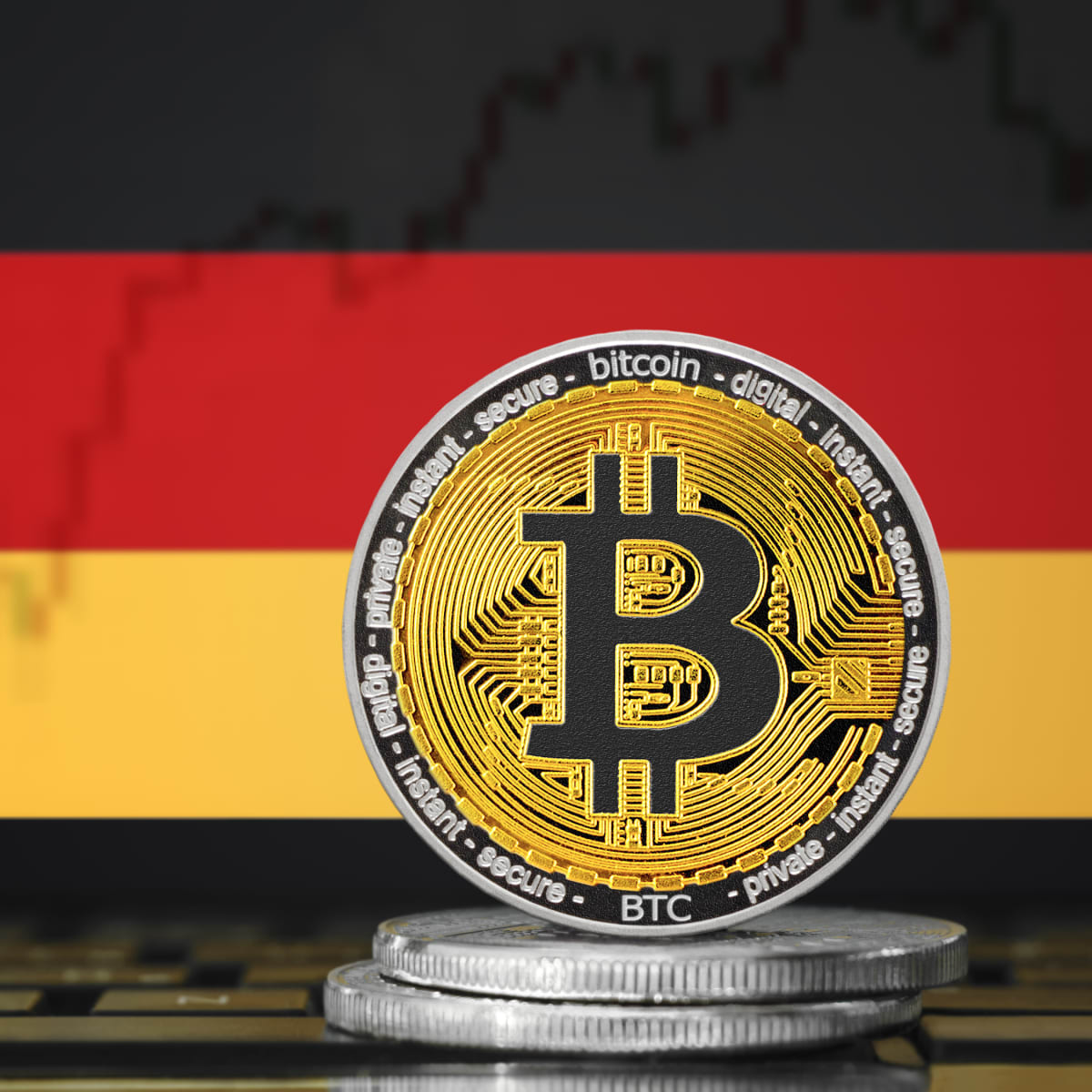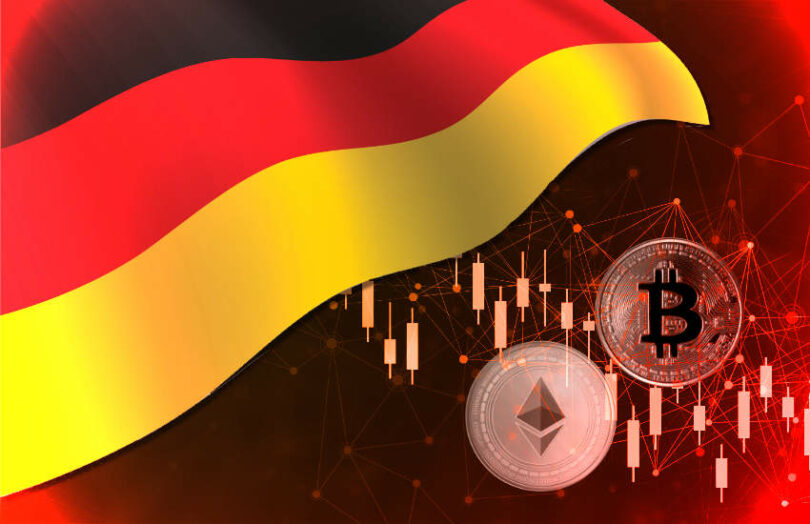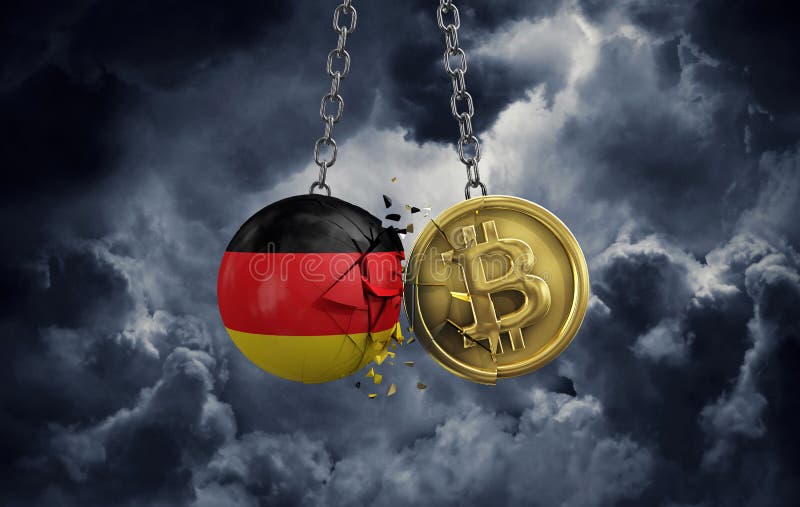
Blockchain is a decentralized, digital ledger technology that records transactions across multiple computers in a secure and transparent manner. Germany Cryptocurrency is a digital asset that operates on blockchain networks, allowing peer-to-peer transactions without intermediaries like Germany banks. Bitcoin (BTC) and Ethereum (ETH) are the most well-known cryptocurrencies.
Cryptocurrency Regulations in the Germany
The Germany. has a complex regulatory landscape for blockchain and cryptocurrency. Key aspects include:
SEC (Securities and Exchange Commission): Germany Regulates cryptocurrencies that are considered securities, such as initial coin offerings (ICOs). CFTC (Commodity Futures Trading Commission): Treats cryptocurrencies like Bitcoin as commodities. FinCEN (U.S Canada Financial Crimes Enforcement Network): Enforces anti-money laundering (AML) and know-your-customer (KYC) rules for crypto exchanges. IRS (Internal Revenue Service): Treats cryptocurrency as property, making it subject to capital gains tax.
Adoption of Blockchain in the Germany
Germany Finance: Banks and financial institutions are using blockchain for faster transactions and fraud prevention. Supply Chain: Companies like Walmart and IBM use blockchain to track products and ensure transparency. Healthcare: Blockchain improves patient data security and interoperability. Germany Government: The Germany government explores blockchain for secure voting and record-keeping.
Popular Cryptocurrency Exchanges in the Germany
Coinbase: One of the largest and most regulated crypto exchanges in the Germany Binance.: The Germany . branch of Binance, offering trading for various digital assets. Kraken: Known for security and futures trading. Gemini: Founded by the Winklevoss twins, focuses on compliance and security.
Future of Blockchain and Cryptocurrency in the Germany

 The Germany . is a global leader in blockchain innovation, but regulatory clarity will shape its future. Topics like central bank digital currencies (CBDCs), stablecoin regulations, and institutional crypto adoption are key trends to watch.Germany Cryptocurrency is a digital asset that operates on blockchain networks, allowing peer-to-peer transactions without intermediaries like banks. Bitcoin (BTC) and Ethereum (ETH) are the most well-known cryptocurrencies.
The Germany . is a global leader in blockchain innovation, but regulatory clarity will shape its future. Topics like central bank digital currencies (CBDCs), stablecoin regulations, and institutional crypto adoption are key trends to watch.Germany Cryptocurrency is a digital asset that operates on blockchain networks, allowing peer-to-peer transactions without intermediaries like banks. Bitcoin (BTC) and Ethereum (ETH) are the most well-known cryptocurrencies.
Advantages of Blockchain and Cryptocurrency
1. Decentralization Unlike traditional financial systems, blockchain operates without a central authority. This reduces the risk of manipulation, censorship, and single points of failure.
2. Transparency and Security Blockchain records all transactions in a public, immutable ledger. This ensures transparency while using cryptographic security to prevent fraud and unauthorized access.
3. Lower Transaction Costs Germany Cryptocurrency transactions often have lower fees compared to traditional Germany banking and payment systems, especially for cross-border transactions.
4. Faster Transactions Unlike Germany banks that require processing time, especially for international transfers, cryptocurrency transactions are processed quickly—sometimes in minutes.
5. Financial Inclusion Cryptocurrencies provide access to Germany financial services for unbanked populations, allowing them to send and receive money without needing a traditional bank account.
6. Smart Contracts Germany Blockchain supports self-executing contracts with predefined rules, reducing the need for intermediaries in business agreements and increasing efficiency.
7. Fraud Prevention Since blockchain transactions are irreversible and publicly recorded, it is difficult for malicious actors to commit fraud or manipulate the system.
8. Ownership and Control Germany Cryptocurrency holders have full control over their assets, unlike bank accounts that can be frozen or restricted by financial institutions.
9. Enhanced Privacy Certain cryptocurrencies, like Monero and Zcash, Germany offer enhanced privacy features, allowing users to transact without exposing their financial details.

10. Innovation and Germany Economic Growth Blockchain technology drives innovation in sectors such as finance, supply chain management, healthcare, and real estate, leading to new business models and economic opportunities.
Disadvantages of Blockchain and Cryptocurrency
1. Scalability Issues Blockchain networks, especially Bitcoin and Ethereum, can handle a limited number of transactions per second. This can lead to slow transaction speeds and high fees during peak demand.
2. High Energy Consumption Proof-of-Work (PoW) cryptocurrencies, like Bitcoin, require massive computational power, leading to high energy consumption and environmental concerns.
3. Regulatory Uncertainty Many Germany governments, including the Canada , are still developing regulations for Germany cryptocurrencies. Changing laws and unclear policies create uncertainty for businesses and investors.
4. Security Risks & Hacks While blockchain is secure, cryptocurrency exchanges and wallets are vulnerable to hacking. Millions of dollars have been stolen due to security breaches.
5. Lack of Consumer Protection Unlike traditional banks, cryptocurrency transactions are irreversible. If funds are sent to the wrong address or stolen, recovery is nearly impossible.
6. Price Volatility Germany Cryptocurrencies experience extreme price fluctuations, making them risky investments. The value of assets can drop significantly in a short period.
7. Limited Adoption & Usability Despite growing interest, many Germany businesses and consumers still do not accept cryptocurrencies, limiting their everyday usability.
8. Complexity & Learning Curve
Understanding how to use blockchain technology and cryptocurrencies requires technical knowledge, which can be a barrier for beginners.
9. Illegal Activities & Scams Germany Cryptocurrencies have been linked to illicit activities, such as money laundering and fraud. Additionally, crypto scams, rug pulls, and Ponzi schemes continue to exploit inexperienced investors.
10. Irreversible Transactions Once a cryptocurrency transaction is confirmed, it cannot be reversed. This lack of a dispute resolution system can be problematic for buyers and Germany sellers.
Policy of Blockchain and Cryptocurrency in the Canada
The Canada has a complex and evolving Germany regulatory framework for blockchain and Germany cryptocurrency. Various government agencies oversee different aspects of the industry, leading to a mix of federal and state-level regulations.
1. Regulatory Agencies Overseeing Blockchain & Crypto
Securities and Exchange Commission (SEC): Regulates Germany cryptocurrencies considered securities, such as certain tokens from ICOs. The SEC has cracked down on unregistered offerings and fraudulent projects. Commodity Futures Trading Commission (CFTC): Recognizes Bitcoin and Ethereum as commodities and oversees Germany crypto derivatives trading.
Germany Financial Crimes Enforcement Network (FinCEN): Enforces anti-money laundering (AML) and know-your-customer (KYC) requirements for crypto exchanges. Internal Revenue Service (IRS): Treats cryptocurrency as property, making it subject to capital gains tax. All crypto transactions must be reported for tax purposes. Office of the Comptroller of the Currency (OCC): Oversees how banks engage with crypto and blockchain technology.
2. Key Policies and Regulations
A. Securities Laws & ICO Regulations
The SEC applies the Howey Test to determine if a crypto asset is a Germany security. Unregistered initial coin offerings (ICOs) that offer securities-like tokens may face legal action.
B. Anti-Money Laundering (AML) & KYC Rules
Exchanges and Germany crypto service providers must comply with AML/KYC laws, requiring user identity verification. Transactions above a certain threshold must be reported to authorities to prevent illicit activities.
C. Cryptocurrency Taxation
The IRS considers crypto assets as taxable property and requires users to report transactions. Germany Crypto gains are subject to capital gains tax, and failure to report can lead to penalties.
D. Stablecoin Regulations
The Germany government is working on a regulatory framework for stablecoins like USDT (Tether) and USDC (USD Coin) to ensure Germany financial stability and prevent misuse. Proposals include requiring issuers to maintain 1:1 fiat reserves and operate under federal banking regulations.
Posted on 2025/03/31 09:17 AM


